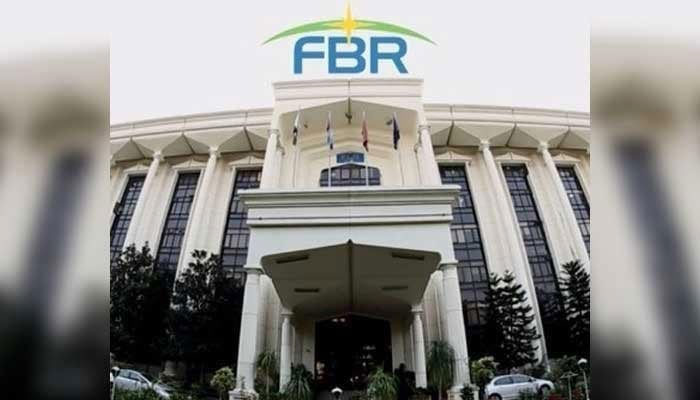A call for reforms
LAHORE: That the Federal Board of Revenue (FBR) and the power sector are the soft underbellies of Pakistan’s economy is a well-known fact. The prime minister has now openly acknowledged this issue for the first time.
This means that a major overhaul or reform of the entire bureaucracy is necessary. The waste of national resources is not only due to the bad functioning of these two entities, but also due to are numerous other factors that are impeding growth. These factors include loss-making, public-sector companies that report the cumulative losses of over Rs1 trillion.
Perks and privileges enjoyed by the ruling elite, bureaucracy and judiciary, including luxury cars, free petrol, free electricity, and palatial residences cost the government a fortune. Such a lifestyle also creates a disconnect between the ruling elite and ordinary people who continue to live in abject poverty.
All attempts to revamp the FBR have failed in the past 25 years. Many FBR officials were let go over the past few months for their failure to implement a track and trace system. They were replaced by another set of bureaucrats but to no avail. This proves that the inherent structure of the FBR needs overhaul. A major reason for corruption here is the absence of bureaucratic accountability. Violations usually result in the transfer of the officials concerned, or they are subjected to departmental inquiry after suspension.
The inquiry is conducted by their colleagues who either ignore the matter or impose minor penalties. When an ordinary citizen causes financial injury to the state, s/he is awarded punishment for months or years, but rent seekers that inflict injury on government finances are let off with no or minor actions that do not impact their careers.
Tax evasion in Pakistan is probably in trillions, but FBR officials feel proud when they achieve revenue targets that are less than 50 per cent of the country’s tax potential. They want to be complimented instead of being reprimanded for not doing more. They do not want to bring high-profile tax evaders into the tax net. The incumbent FBR chairperson has reportedly asked for early retirement probably because he is disappointed that the FBR’s performance is constantly under scrutiny although the department exceeded the yearly revenue target.
The lifestyle of some FBR officials clearly suggest that the have assets beyond their means. Their pay scales cannot afford the luxuries they possess.
-
 What You Need To Know About Ischemic Stroke
What You Need To Know About Ischemic Stroke -
 Shocking Reason Behind Type 2 Diabetes Revealed By Scientists
Shocking Reason Behind Type 2 Diabetes Revealed By Scientists -
 SpaceX Cleared For NASA Crew-12 Launch After Falcon 9 Review
SpaceX Cleared For NASA Crew-12 Launch After Falcon 9 Review -
 Meghan Markle Gives Old Hollywood Vibes In New Photos At Glitzy Event
Meghan Markle Gives Old Hollywood Vibes In New Photos At Glitzy Event -
 Simple 'finger Test' Unveils Lung Cancer Diagnosis
Simple 'finger Test' Unveils Lung Cancer Diagnosis -
 Groundbreaking Treatment For Sepsis Emerges In New Study
Groundbreaking Treatment For Sepsis Emerges In New Study -
 Roblox Blocked In Egypt Sparks Debate Over Child Safety And Digital Access
Roblox Blocked In Egypt Sparks Debate Over Child Safety And Digital Access -
 Savannah Guthrie Addresses Ransom Demands Made By Her Mother Nancy's Kidnappers
Savannah Guthrie Addresses Ransom Demands Made By Her Mother Nancy's Kidnappers -
 OpenAI Reportedly Working On AI-powered Earbuds As First Hardware Product
OpenAI Reportedly Working On AI-powered Earbuds As First Hardware Product -
 Andrew, Sarah Ferguson Refuse King Charles Request: 'Raising Eyebrows Inside Palace'
Andrew, Sarah Ferguson Refuse King Charles Request: 'Raising Eyebrows Inside Palace' -
 Adam Sandler Reveals How Tom Cruise Introduced Him To Paul Thomas Anderson
Adam Sandler Reveals How Tom Cruise Introduced Him To Paul Thomas Anderson -
 Washington Post CEO William Lewis Resigns After Sweeping Layoffs
Washington Post CEO William Lewis Resigns After Sweeping Layoffs -
 North Korea To Hold 9th Workers’ Party Congress In Late February
North Korea To Hold 9th Workers’ Party Congress In Late February -
 All You Need To Know Guide To Rosacea
All You Need To Know Guide To Rosacea -
 Princess Diana's Brother 'handed Over' Althorp House To Marion And Her Family
Princess Diana's Brother 'handed Over' Althorp House To Marion And Her Family -
 Trump Mobile T1 Phone Resurfaces With New Specs, Higher Price
Trump Mobile T1 Phone Resurfaces With New Specs, Higher Price




